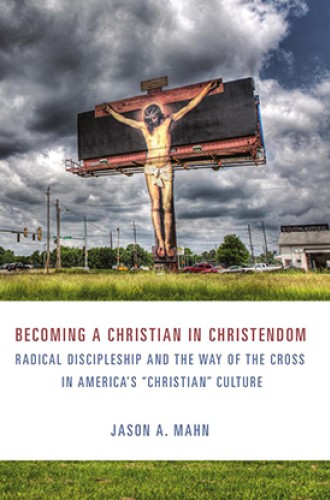Still resisting Constantine
According to Reformation scholar Jason Mahn, the birth of Christendom was a sort of Fall.
Reformation scholar Jason Mahn implies that authentic Christians—those who are stubbornly and earnestly true to the Gospels—are few and far between. According to Mahn’s diagnosis, nominal Christians, especially American Christians, have accepted too readily the priorities of the neoliberal state. We have embraced the consolations of the consumer society, and we have accepted military victories and sacrifices as essentially holy. In the process, we have forgotten the nonconformist who hung and suffered on the cross to prove that, in a face-off with corrupt or mistaken state power, he would rather die than kill. Jesus, properly understood through a theology of the cross, embraced his weakness in order to live with us and to teach us how to suffer for what is deeply and truly right.
Mahn’s heroes are Søren Kierkegaard, Dietrich Bonhoeffer, and a group of contemporary religious historians and theologians he calls anti-Constantinians. These are contemporary thinkers who lean toward pacifism, such as John Howard Yoder and Stanley Hauerwas, African American and feminist scholars with their own critique of the American church, and liberation theologians with their vision of a radically new and just society. What these thinkers have in common, apart from their call to peacemaking, is their disgust for Christendom—the normalized, apparently inoffensive, consoling Christian church community that too often half-consciously aids and abets a cruel and violent larger society.
As Mahn recounts it, the story of Christendom began in the early 300s CE when the Roman emperor Constantine converted to Christianity and legalized his new faith in all Roman lands. Soon Christianity ceased to be a beleaguered, denigrated faith of a powerless few who sought to remember and listen to the crucified Christ. Through its new legal status—and certainly through its own arguments and charms and the work of God—its adherents spread across Western Europe and transformed its ways. Christianity became the faith of the West.






